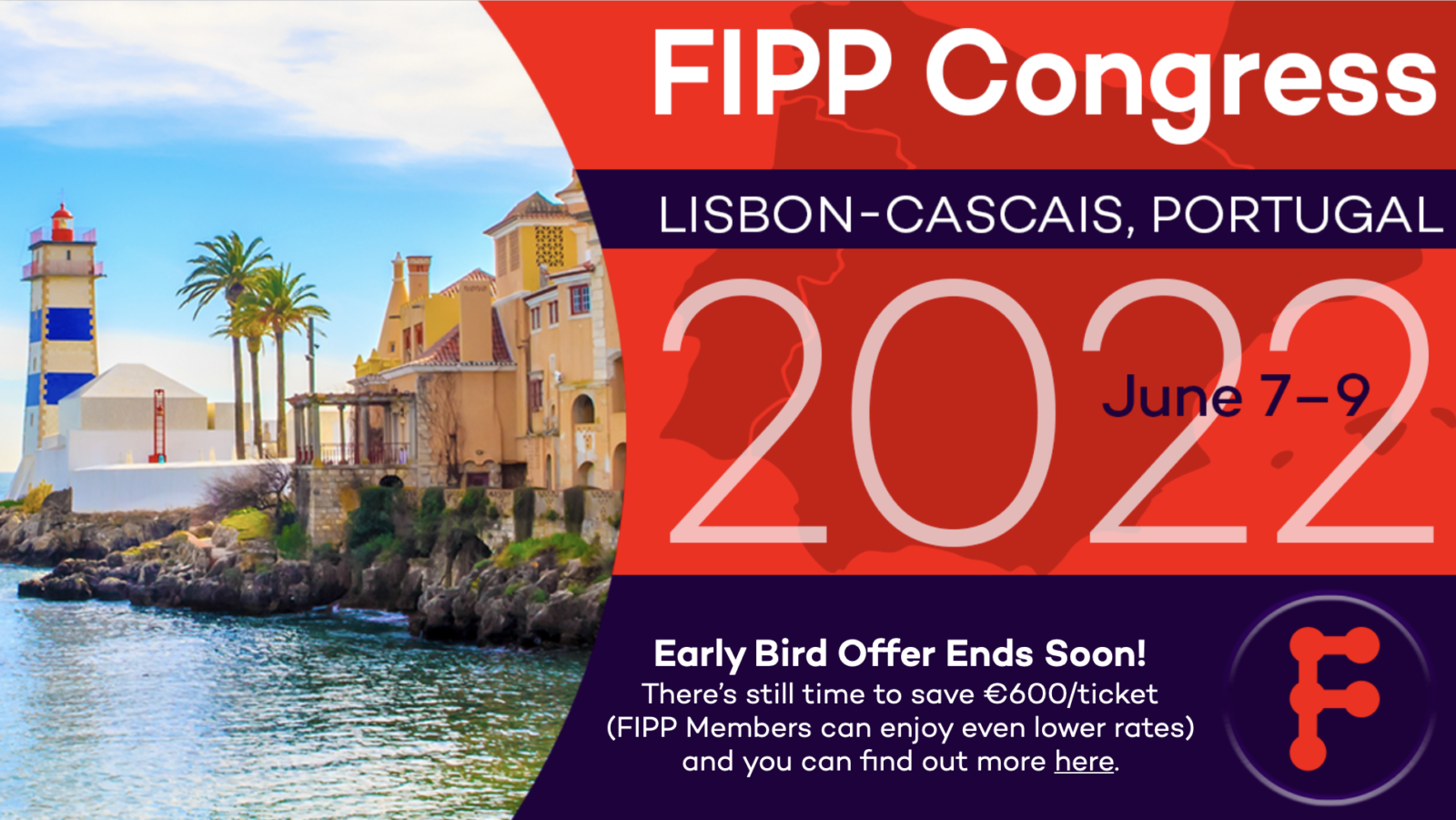Former Spotify Chief Economist, Will Page, on lessons learned from the digital transformation of the music industry
“Honestly, when I learn of subscriber acquisition and churn rates in newspapers and magazines I feel like I’m going to faint. Some titles celebrate adding 100,000 new global subscribers in a calendar year as a record-breaking success; well Spotify adds that in a single day! On churn in newspapers, you get promoted if you can get it DOWN to 25%. It’s jaw-dropping and often makes me wonder if these organisations should reallocate resources to fix churn as opposed to maintaining acquisition levels.”
The music industry was the first to undergo a process of digital transformation, which ultimately led to a complete re-calibration of the business models of both artists and labels. One man who has chronicled the issues the industry faced, as well as noting the solutions it came up with, is Will Page.
Part of our: Meet the Speaker Series
Will will be speaking at the 44th FIPP World Media Congress in June, and you can find out more here.
After working as an economist and a writer for a decade, Page joined Spotify in 2012 as its Chief Economist. He witnessed at first hand the stratospheric growth of the platform, and the way it has managed to maintain its position as a streaming market leader in spite of some fierce competition.
Page, who has recently written a book, ‘Tarzan Economics’, believes that the wider media industry, which is now also undergoing similar digital transition more broadly, has much to learn from the music sector. It is a topic that he will explore in much more depth at FIPP Congress.
In this exclusive interview for FIPP, he explains why everyone needs to understand economics, why the media constantly shoots itself in the foot in its subscription pricing, and why churn should be top of the agenda for media executives.
Can you give some background as to your career to date? You have certainly had some interesting roles in innovative companies...
“With so many industries and institutions now staring at their own ‘Napster moment’, I am eager to share those lessons at FIPP Congress.”
In 2006 I got lucky, merged my passions of music and economics, and became the first ever ‘Rockonomist’. For the past fifteen years, I’ve had the best seat in the house for learning how to navigate digital disruption. My first book ‘Tarzan Economics’ allows me to transfer the lessons learned at scale. Music matters because it got there first. It was ‘first to suffer, first to recover’; with so many industries and institutions now staring at their own ‘Napster moment’, I am eager to share those lessons at FIPP Congress.
And what does your day generally look like now?
I’m a restless workaholic so standing still is not an option. Currently, I’m in limbo between the release of the hardback last year and the paperback, later this year. I’ve filled up my time working with some of the biggest companies in media – Twitch, News Publishers, Major Labels – to identify problems that need solving, then work out how to solve them. My work with Twitch was special as I cracked the economics of live streaming they allowed me to publish it online and it really resonated with a broad church audience.
What was the inspiration behind writing the book, what are its key points and did the writing cause you to re-evaluate some of the positions you had previously held?
I love teaching economics. My father taught me how to teach economics when I was eleven so this book has been a long time coming. His fundamental belief: The people who need to learn about economics most are those who (a) don’t think they will understand it; (b) don’t want to understand it; but (c) have to understand it. I also try to bring comedy to the way I teach as I am a firm believer that if they’re not laughing, there’s no chance of learning.
Do you think that the digital transformation in the wider media industry has followed the same path specifically as the music sector?
Yes. Chapter (or Principle) One helps explain why, by reminding us of that famous 2×2 matrix to define goods – is what you are selling scarce and excludable? If yes, yes then it’s a private good – like a CD or magazine in a shop. Firstly if I pick up the last copy then you can’t – so it’s scarce. Secondly, there’s a big nasty security guard meaning I have to pay – so it’s excludable.
What happens when the good you are trying to sell loses both those properties? Welcome to Napster 1999! Music is no longer scarce and definitely not excludable. What’s key to music’s story is we established a toll (or a toll good) model and now half a billion people are paying a toll (or subscription fee) to access something they could otherwise get for free. I think the newspaper and magazine industry has a LOT to learn from this journey.
Mainstream news organisations like the FT, NYT etc have in the past been very envious of the way that Spotify was able to build and maintain its subscriber base. What key lessons can they learn from the company?
They constantly shoot themselves in the foot with the most bizarre and counterproductive pricing and promotional offers. Music cracked ‘charm pricing’ – it’s 9.99 a month in euros, dollars and sterling. It’s a price point that resonates so well we haven’t changed it in twenty years. Newspapers say things like ‘Subscribe for £1.71 per day’ – who wants to respond to that? Are you telling me my bank statements will have thirty-odd deductions of £1.71 each and every month? As Jay-Z would say, your industry has 99 problems but price is a big one.
And who else in the media do you think they should be looking to for inspiration in furthering their paid online media offerings?
I’ll toss two at you, there’s two hundred more we can discuss in Portugal. Fintech is interesting. You’ve just seen Le Monde partner with Stripe, that for me is noteworthy. Old media is partnering with new finance and that equals progress. Reddit is also interesting – they broke stocks during the pandemic, so what else can they break when the world gets back to normal. Reddit’s audience in the US is 3x the size of the newspaper subscription population, you can’t ignore that.
There has been talk recently of ‘peak subscription‘. Is there a point when consumers can’t/won’t pay for any more media? Are we nearly at that time?
Yes, I document this a lot and have pioneered work on the addressable market. You could argue that countries like Norway and Sweden have reached peak Spotify subscription but that hasn’t stopped them from growing – they’ve just got used to growth being tough as opposed to easy. Those markets have learned how to adapt to the new terrain and there’s a lot we can learn from them to futureproof other industries.
And what advice would you give to news and magazine companies about retention?
Honestly, when I learn of subscriber acquisition and churn rates in newspapers and magazines I feel like I’m going to faint. Some titles celebrate adding 100,000 new global subscribers in a calendar year as a record-breaking success; well Spotify adds that in a single day!
On churn in newspapers, you get promoted if you can get it DOWN to 25%. It’s jaw-dropping and often makes me wonder if these organisations should reallocate resources to fix churn as opposed to maintaining acquisition levels.
Lastly, with apologies to Lauren Laverne, what three discs would accompany you to a desert island?
Well, I have worked with the Brazilian composer Eumir Deodato for almost two decades and I was thrilled to see that EasyJet used his funk version of 2001 A Space Odyssey in their new TV commercial. It is a wonderful commercial, and a reminder of how powerful music can be when synced with visuals.
I’d also add to the island INXS Hear That Sound – my Spotify Wrapped is basically the same every year, my love of INXS will never tear me apart (!!). Finally, some shameless self promotion, my annual DJ mix on MixCloud is titled We Ain’t Done with 2021 and just set a new record reaching #1 worldwide, passing 30,000 uniques in under four months.
? To see the latest speaker line-up for this June’s FIPP World Media Congress, along with details of the agenda and more, click here.












